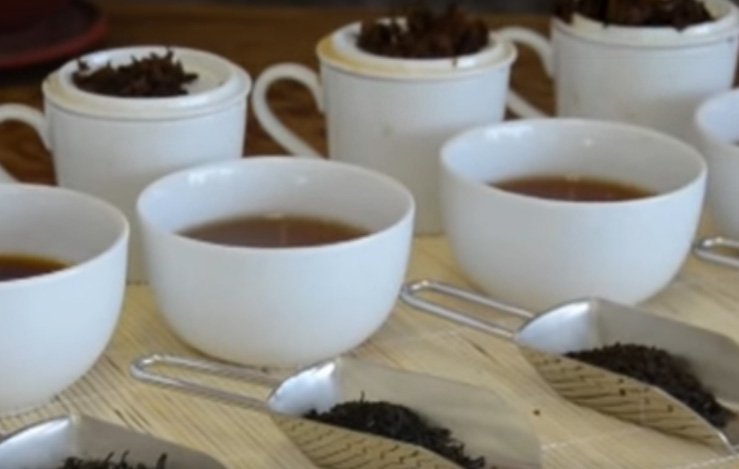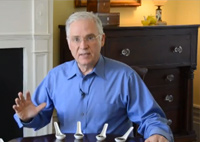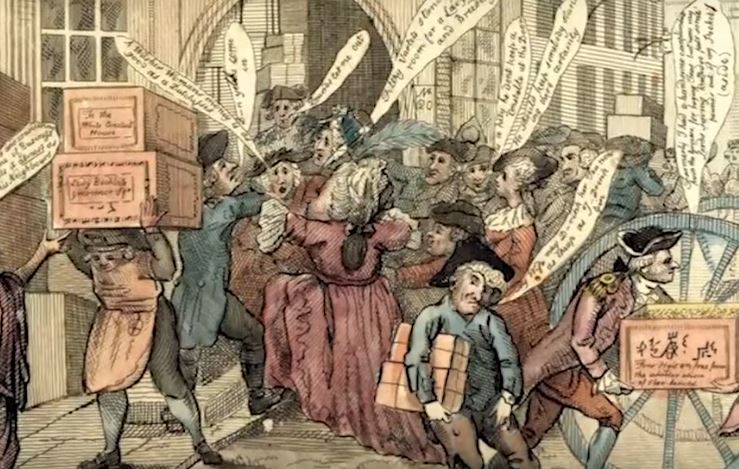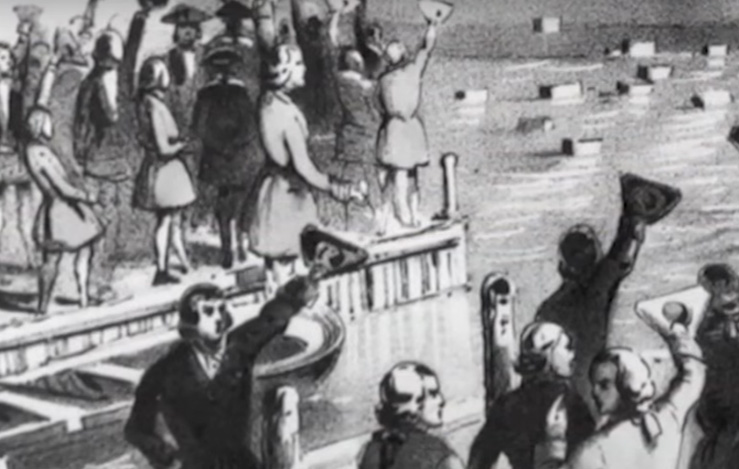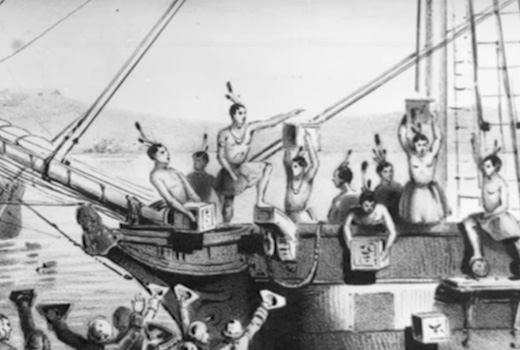Legacy of the Boston Tea Party
From the “Talking History with Benjamin L. Carp” Video Series – Webisode 5
Transcript
0:00:10
the legacy of the boston tea party is, i think a mixed one. i think that that one of the reasons why the boston tea party, the participants in the boston tea party keep their own secret for about 50 years is that part of them thought of it as a somewhat shameful act as an active property destruction as an act of disorder. something that you wouldn’t necessarily be proud of.
0:00:31
and it’s only as these guys are in their very old age as the revolutionary generation is about to pass out of the existence that americans begin to increase the boston tea party in her 2 impulses to this
0:00:43
one is an impulse to make it a safer event to kind of call it something something cute like the boston tea party to kind of make it a safe thing to teach your your children.
0:00:53
but there’s another maybe more radical impulse of boston workers kind of saying this was our moment, this was the moment when artists and ordinary artisans and craftsmen were striking a blow against the british and isn’t this something to be proud of in terms of of boston’s working heritage.
0:01:09
on the one hand we look at the boston tea party as something heroic,as part of the american heritage, a crucial event in the run-up to the american revolution something to embrace but there’s always been also be a more conservative law-and-order impulse among americans that looks at this event and says “whoa” maybe that’s not the kind of thing we want to encourage. maybe we don’t want to encourage property um… destruction and vandalism and law-breaking even if it’s in the service of natural rights or some sort of higher liberty.
0:01:37
the americans definitely did dress as indians when they destroyed the tea.
now they did dress as indians when they destroyed the tea. now they didn’t dress in a way that would have fooled anyone. everyone knew that these were disguises sometimes hasty disguises.
0:01:49
sometimes no more than a blanket wrapped around your shoulder and a smear of paint or soot on your face. so these were not good disguises but they were symbolic disguises. they were symbolic in that the americans were basically saying look, we expect not to be revealed for who we are we know we expect not to be punished for
this we expect our towns men not to rat us out for what we’ve done
0:02:12
but the disguises were meant to send a message. one is don’t tell on us. and the other message is we are dressing as native americans because we see ourselves as native american. we’re separating ourselves from englishman because englishmen are forcing us too separate our ourselves. we want to think of ourselves as being british but you are forcing us to adopt this american identity we still think of ourselves as as white but we are emulating the defiant nature of indians of native americans and we are appropriating their identity probably in a a somewhat offensive way if you’re an actual indian uh… but you know we are appropriating this identity in order to make a symbolic point that we are we see ourselves now as at separate from parliament in this crucial way.

